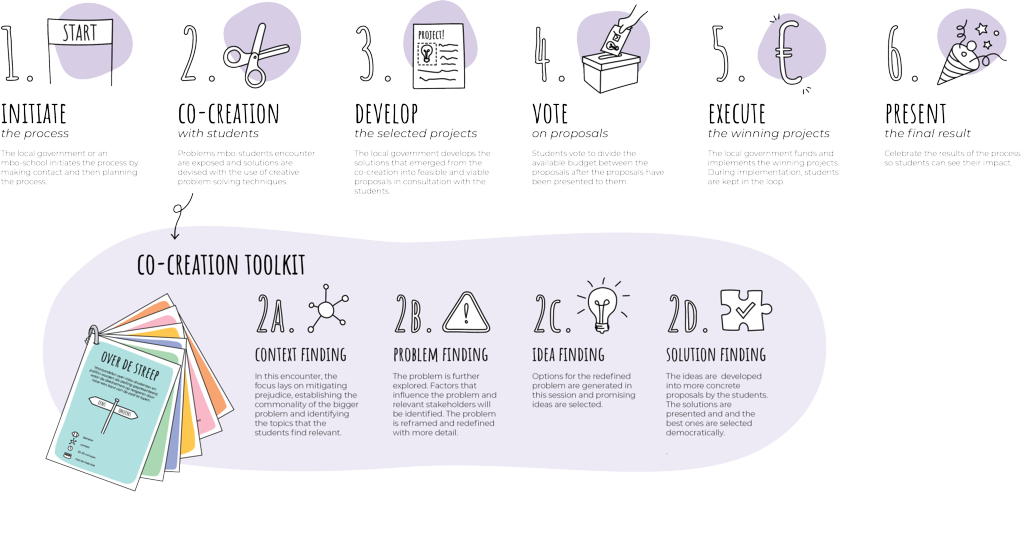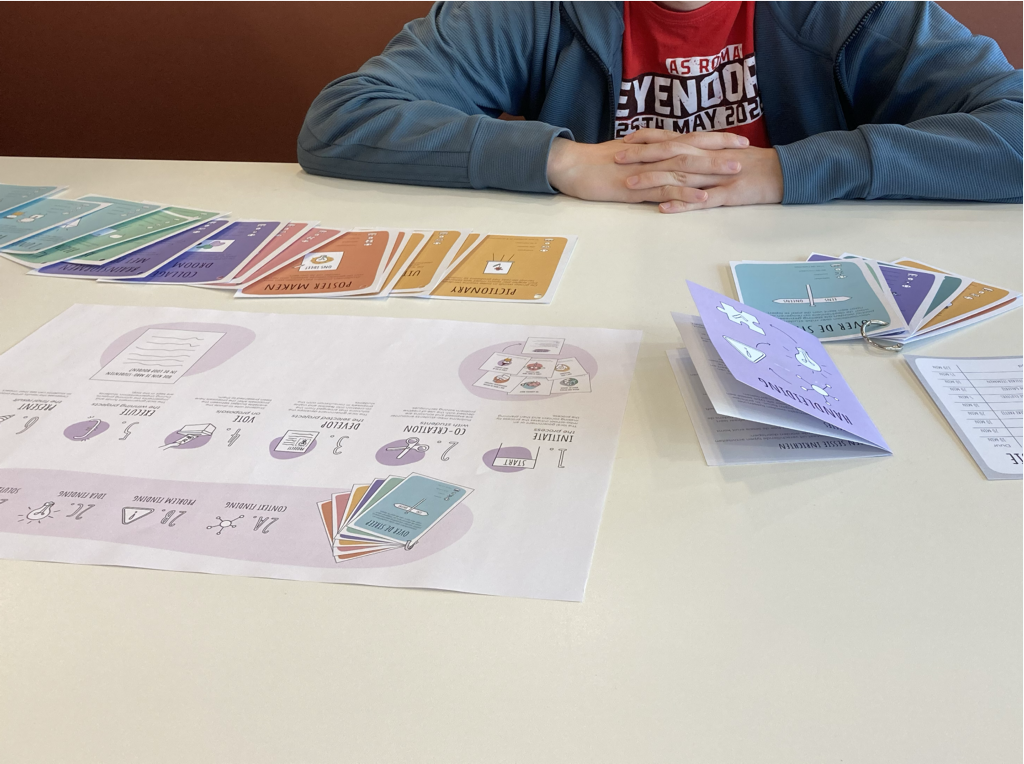In general, most adolescents in the Netherlands are uninterested in and do not participate in politics. Politics is seen as something for the more ‘formally’ educated. The lack of political awareness in those in secondary-vocational education (mbo), which forms the majority of the working population, can result in inequalities for those who are unable to adequately voice their concerns, and this in turn can harm the legitimacy of our democratic system. Therefore, it is paramount to involve mbo-students (secondary vocational education) more in (local) politics. The lack of participation of mbo-students is a complex problem with many causes. There is a gap between politicians and mbo-students, and the current system does not fit students’ needs. They have difficulties formulating opinions autonomously and do not know how to translate these into action.
The process of participatory budgeting (where a municipality allocates a section of the annual budget to be spent by citizens) has been altered to more accurately represent the needs and wishes of mbo-students. Their experiences form the foundation for the process. With the use of integrated creative problem-solving techniques, students and politicians define potential projects together.
The project design is based on four sessions, each with its own focus. In this way, mbo students and politicians navigate together from problem to solution. A session plan can be designed by the municipality and schools with the use of the Activity Cards. These describe different types of (creative) activities, allowing the participants to go through the different stages of the creative process: diverging, reverging, and converging. The activities are shaped so that the creative facilitation does not require experts, allowing students and politicians to go through the process autonomously.
The design makes creative problem-solving more accessible to non-designers, providing policymakers and politicians with the means to shape contacts with mbo-students. Simultaneously, the toolkit gives students the opportunity to express their views directly to people who can make a difference. This is necessary for both groups to understand each other better.
In the long term, this understanding allows politicians to address the issues of mbo-students, making politics more inclusive. Participating in the entire process can contribute to mbo-students feeling heard. These projects are essential, as they will help raise the political awareness and representation of this ‘lost’ group of students.





